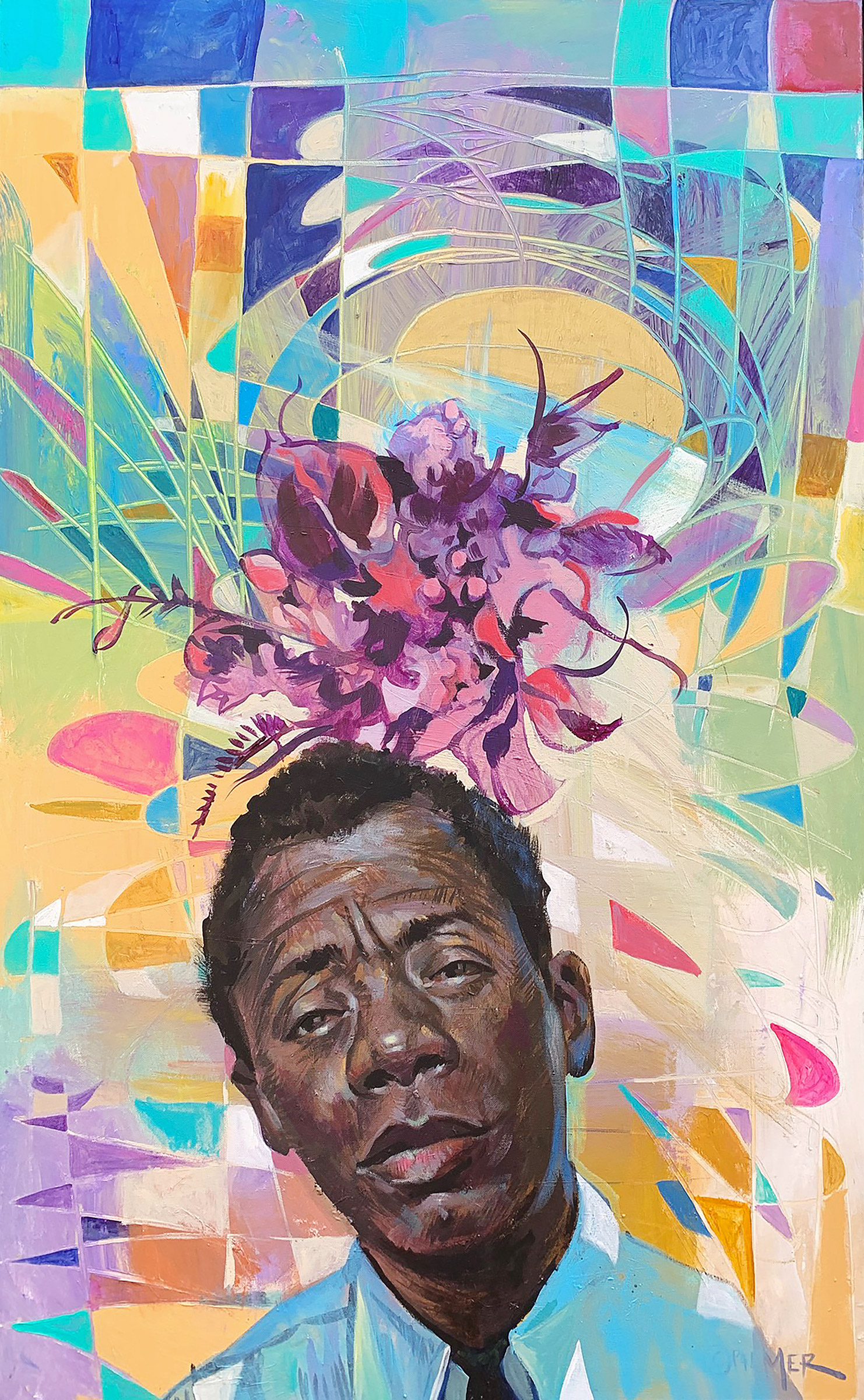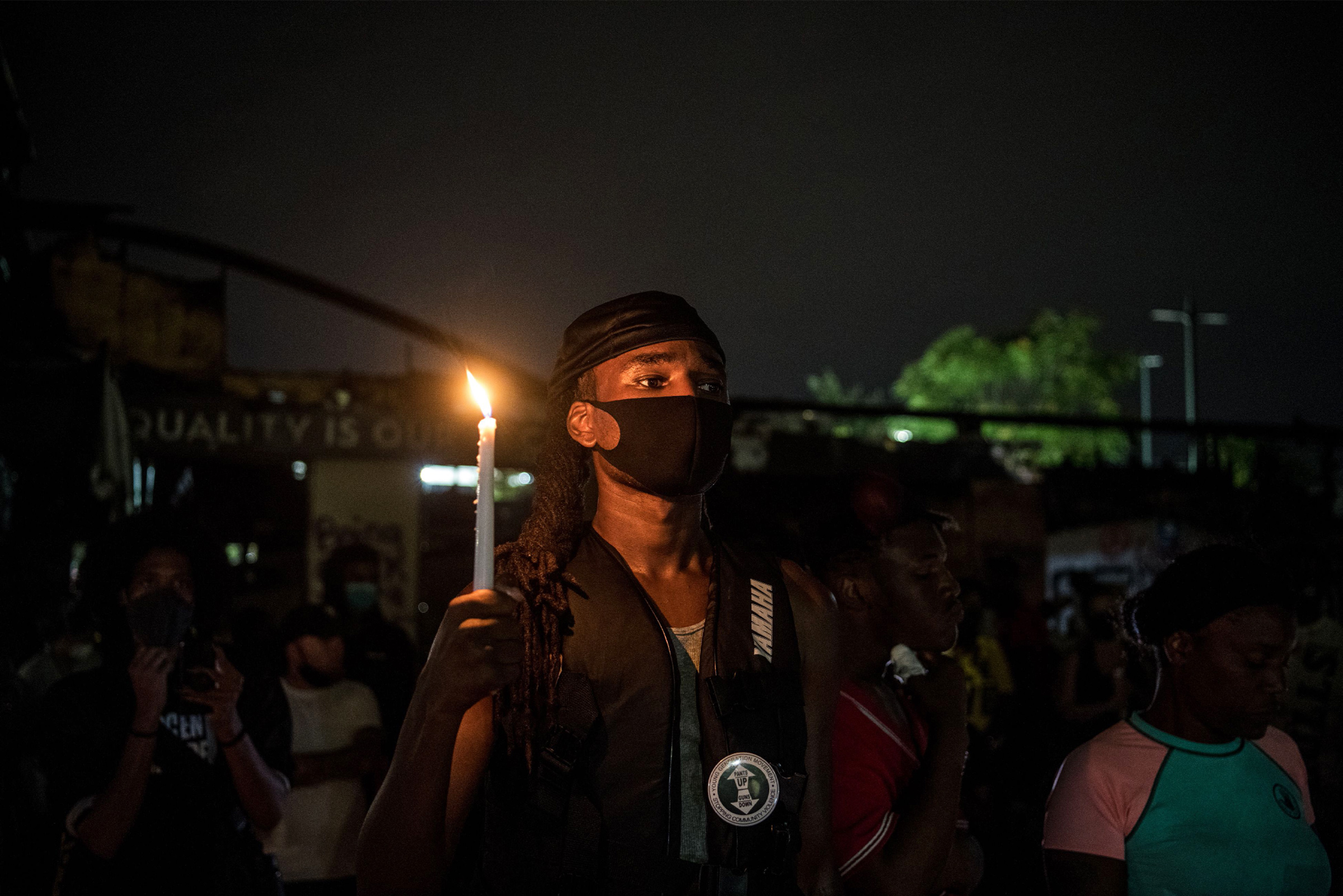
Police violence against Black people in this country is as American as bald cypress trees and Southern magnolias. In each generation we have to experience the haunting ritual of a Black family grieving in public over the loss of a loved one at the hands of the police.
Recent years have been particularly tough. Cell-phone videos have brought us a torrent of cruel images of Black death. Perhaps that is the source of the intensity of our current moment.
The videos of George Floyd and Rayshard Brooks dying have combined with the vulnerability caused by COVID-19 and the feeling that the country is broken to bring us all to the brink of madness and, apparently, to the precipice of significant change. An odd admixture, but an understandable consequence of our troubled times. We now face a moral reckoning: Americans have to decide whether this country will truly be a multiracial democracy or whether to merely tinker around the edges of our problems once again and remain decidedly racist and unequal.
We have been here before. Martin Luther King Jr. and countless others risked everything to persuade the country to live up to its stated ideals and to rid itself of the insidious view that white people mattered more than others. They marched. They suffered the billy stick, fire hoses and police dogs. They watched as friends and fellow travelers ended up at the bottom of the Mississippi River. And they witnessed King’s dream shattered to pieces like windowpanes facing hurricane-force winds.
More From TIME
America’s betrayal of the civil rights movement gave way to urban explosions across the country, declarations of Black Power and interminable debates about the slogan’s meaning. White politicians stoked white resentments as the “silent” majority shouted that they were the true victims; rioted in hard hats against anti–Vietnam War protesters; violently resisted forced busing; and eventually elected Ronald Reagan, a man as notorious among Black activists as the segregationist Alabama Governor George Wallace. More than a decade after King’s murder, Reagan’s election represented a stark reassertion of the value gap–the idea that white lives matter more than others’. In that moment of reckoning, the country made its choice and sealed Black America’s fate for two more generations.
James Baldwin, the great American writer and critic, witnessed it all. He traveled the South as early as 1957 and saw the promise of the movement’s early days. He experienced the rage caused by betrayal and clenched his teeth as the country doubled down on its ugly commitments. As he said in his last ever interview, with Quincy Troupe, in 1987, “Ronald Reagan represent[ed] the justification of their history, their sense of innocence … the justification, in short, of being white.” With cancer ravaging his body in his last years, Baldwin was a despairing witness desperate to tell the story of how the country had arrived at such a moment. As the nation today faces yet another moral reckoning, it would do us well to listen to Jimmy tell the story of how we failed when faced with a similar choice, and how we can still muster the faith to begin again.

In 1979, Baldwin wanted to write an essay about the South for the New Yorker. He would retrace his footsteps from his 1957 trip and tell the story of what had happened since those fateful days. It would be an essay about fractured memories, the trauma of loss (of the murders of Medgar Evers, Malcolm X and King) and America’s betrayal–an extension of what he had explored seven years earlier in his powerful book No Name in the Street. Then, Baldwin had sought to pick up the pieces after the assassination of King in 1968, which threw him into a deep depression. He attempted suicide in 1969 and for a period found himself flailing. No Name represented his effort to make sense of what had happened and to announce his survival.
No Name in the Street is an extraordinary achievement. If The Fire Next Time, Baldwin’s powerful polemic published in 1963, was prophetic, No Name was his own reckoning. It was his answer to how we might respond to the collapse of the Black-freedom movement and to the country’s failures. At the level of form, the book mirrors the fragmenting of memory by trauma. He anticipates the beginnings of mass incarceration and offers a scathing criticism of the way the criminal-justice system crushed Black people with intention. “If one really wishes to know how justice is administered in a country,” he writes, “one does not question the policemen, the lawyers, the judges, or the protected members of the middle class. One goes to the unprotected … and listens to their testimony.”
As Baldwin imagined it, this essay would take up these themes once again and extend the account through the decade of the ’70s. He would show that the true “horror is that America … changes all the time, without ever changing at all.” Baldwin, however, never wrote the essay. Instead, he worked with an English filmmaker, Dick Fontaine, and his partner, Pat Hartley, to produce a documentary film about his return to the South. I Heard It Through the Grapevine would capture on film the tragic aftertimes of the Black-freedom struggle on the eve of the election of Reagan in 1980.
The film opens with Baldwin sitting in his brother’s apartment looking over photographs of the civil rights movement. As he turns the page, we hear the voice-over of his whiskey- and cigarette-coated baritone:
“It was 1957 when I left Paris for Little Rock, Ark. 1957. This is 1980, and how many years is that? Nearly a quarter of a century. And what has happened to all those people–children I knew then, and what has happened to this country and what does this mean for the world? What does this mean for me? Medgar, Malcolm, Martin dead. These men were my friends … But there is another roll call of unknown, invisible people who did not die, but whose lives were smashed on the freedom road.”
In some ways the film is a return to the scene of the crime–an exploration of the heroic efforts of those Baldwin described elsewhere as “spiritual aristocrats” and the tragic consequence (for them and for us) that followed from the choices made by a nation that refused to change.
As I was researching my new book, Begin Again, I visited the Harvard Film Archive, where the Dick Fontaine Collection is housed. I was able to examine the research and production materials for the film and read transcriptions of interviews that were left on the cutting-room floor. One interview stood out, and I am still haunted by the intensity of the exchange.
At the historic Dooky Chase’s restaurant in New Orleans, Baldwin sat down with civil rights leader Ben Chavis. In 1972, with nine others, Chavis was wrongfully convicted on charges of arson and conspiracy in Wilmington, N.C., in the midst of a campaign to desegregate the city’s schools. The group would become known as the Wilmington 10, and between them they were sentenced to a total of 282 years in prison. After Jimmy Carter was elected President, Baldwin wrote an open letter in the New York Times urging him to rectify the injustice. “I am not so much trying to bring to your mind the suffering of a despised people … as the state and the fate of a nation of which you are the elected leader.” North Carolina Governor James Hunt commuted their sentence in 1978 but refused to pardon them. Baldwin sat down with Chavis some two years later and asked him to tell his story.
As Chavis recounted the traumatic story of the police and the Ku Klux Klan in Wilmington, I felt the rage in Baldwin’s responses leaping from the page. Jimmy kept describing what was happening and what had happened as genocide. Then he offered words that seem as relevant today as they were then: “What we are dealing with really is that for Black people in this country there is no legal code at all. We’re still governed, if that is the word I want, by the slave code. That’s the nature of the crisis. [Y]ou haven’t got to have anything resembling proof to bring any charge whatever against a difficult, bad nigger.”
When I spoke to Chavis in early June about the interview, he said you could see the rage in Baldwin’s eyes as he spoke. “You know, Jimmy didn’t just express himself with his pen and his voice. His eyes damn near started protruding.”
Fontaine and Hartley didn’t include the scene in the finished film. Chavis told me that he didn’t know the transcript existed, and that he has never seen the documentary. But he had an idea why the directors might have left the interview on the cutting-room floor. With Reagan’s election, Chavis recalled, “There was a lot of hopelessness in Black America at the time.” And Fontaine and the film crew seemed to disagree with what he and Baldwin were saying or, more accurately, how they were saying it. “At one point the film crew cut off the camera,” Chavis said, “and said, ‘I think we need to take a break.’ Jimmy said, ‘No we don’t!'” By the time they’d wrapped the interview, Chavis said with a mischievous chuckle, Fontaine and Hartley “were physically and emotionally exhausted.”
In the end, I Heard It Through the Grapevine was Baldwin’s attempt to tell the story of the ruins–of what happened after the country refused to change. He was angry, but he still held on to the faith that we could be otherwise. As he told Chavis, “They have never confessed their crimes, and they don’t know how to confess their crimes … If you can’t confess, you can’t be forgiven, and if you can’t be forgiven, you can’t get past it. That is the sin against the Holy Ghost … The only way to get past it is to confess.”
Baldwin and Chavis’ conversation took place as white America slammed the door shut on the opportunity for the fundamental transformation the civil rights movement had occasioned. The Reagan years would undo so much. We are now facing what those years have wrought. The ghosts still haunt, but we now have a chance again to choose a new America. We have some difficult days ahead. The current crisis around policing and the protests in the streets confront us with the ugliness of who we are as a nation. As Baldwin knew, that ugliness cuts deep–to the marrow of the bone. In such moments, in fact throughout our days, Baldwin insisted that we tell ourselves the truth about what we have done and what we are doing. We cannot stick our heads back in the sand or seek comfort in our national illusions or our so-called innocence. This moral reckoning requires confession and repair. If we fail this time, and it may well be our last chance, ours will be the latest addition to the ruins.
More Must-Reads from TIME
- Cybersecurity Experts Are Sounding the Alarm on DOGE
- Meet the 2025 Women of the Year
- The Harsh Truth About Disability Inclusion
- Why Do More Young Adults Have Cancer?
- Colman Domingo Leads With Radical Love
- How to Get Better at Doing Things Alone
- Michelle Zauner Stares Down the Darkness
Contact us at letters@time.com